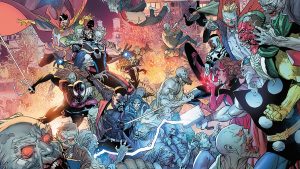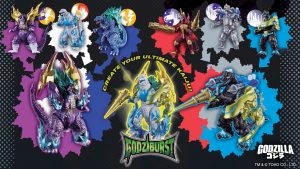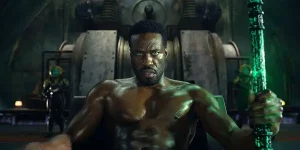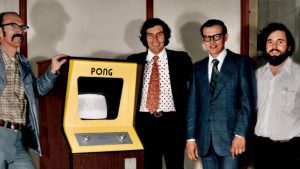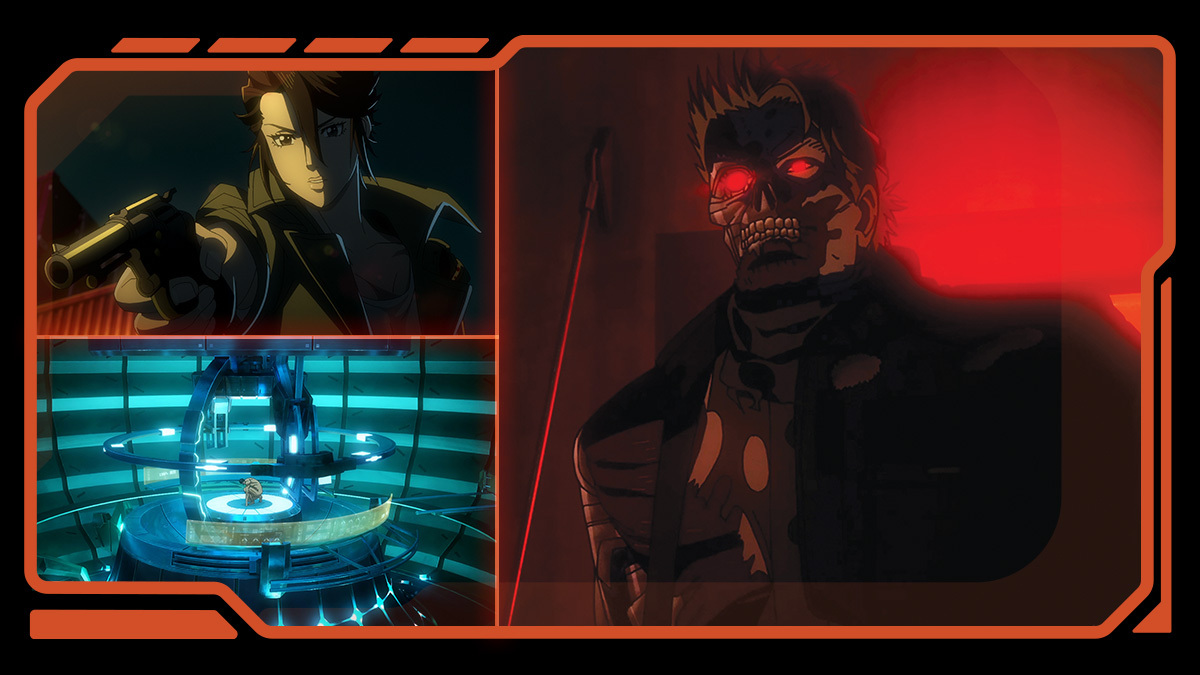
This article is presented by
Mattson Tomlin can’t quite believe that he’s here, sitting in the Netflix offices talking about his soon-to-be-released Terminator anime with Production I.G.
“It started with a phone call out of the blue,” he recalls. “I was directing my movie Mother/Android, which is also about another robot apocalypse.” The film takes from Tomlin’s own experience as an adoptee and has what he calls “a completely different emotional tenor” than Terminator, but that didn’t stop him from comparing the two.
Tomlin’s remit was simple: craft an animated TV show made with Netflix and their partners Production I.G, the famed Japanese animation studio behind hits such as Ghost in the Shell and Psycho-Pass. It was then that the writer/director had a realization. “Oh, it’s gonna be a very different mode than the $200 million blockbusters they’ve been making.” The only story rule was that it had to have a Japanese element to it. “At first, they were like, maybe just a Japanese character or something like that. And I was just like, ‘No, we should set it in Japan,’ and I pitched the story.”
Tomlin was eager to craft something that added to the lore of the franchise while giving a whole new perspective that we hadn’t yet seen. He thought that “leaving the U.S./Mexico border” was an exciting way to do just that. It wasn’t just a chance to learn new things about the Terminator series but also for Tomlin to learn the ropes of working with an anime studio.
The director was equally excited and terrified about taking on such a beloved and impactful franchise. “It happens with every job, you know, I really, really want it but I’m also scared to death of getting it because if I get it then I actually have to do it.” He’s also aware of the importance of leading with story. “You can’t just blow up shit for the sake of blowing it up. Nobody wants that, what people want are characters and story and the truth.”
An anime studio bringing in an American writer to compose a show that is made by a Japanese production company is an unusual setup. Tomlin made it clear that it had been a learning experience. “I’m still learning. We’re finishing the show now, and the collaboration has been excellent. Director [Masashi] Kudō is a genius, and all those folks at Production I.G are incredible artists who truly give a fuck about what they’re doing, and that’s special.”
Terminator Zero straddles two timelines: 1997 as a scientist named Malcolm Lee attempts to use his own AI creation to stop the incoming Skynet threat, and 2022 where a group of rebel survivors send a warrior, Eiko, back in time in order to stop Skynet from achieving its goals. In order to stop Malcolm’s plan, a new Terminator is sent back to assassinate him–changing the lives and futures of the scientist and his family forever. It’s a vibrant new take on the classic franchise that expands our understanding of what a Terminator can be and how Judgment Day played out. It also marks the first anime in the series’ decades long history.
The show opens with a stunning 10-minute action sequence that fully cements it as a vital entry into the dystopian action franchise while still feeling wholly unique. It’s the kind of cold opener that will encourage both new and old fans to give the series a chance, and for Tomlin, it represents one thing: “Relief! Just total relief, not only like this is going to be okay or this is going to be good but ‘Oh fuck, we’re doing this!’” he says. “And to make it about me for a second, they’re going to make me look so smart! I’ve been so spoiled by my artistic collaborators, both in comics and here. The writing is just the writing, but to stick the landing on the page or, in the case of Terminator Zero, the screen, is a whole other ballgame!”
The series balances the hardcore cyborg action alongside the heart that has always made the franchise sing, something Tomlin realized was key in his early research phase. “Once I got the job, I watched all the movies again and was just looking for ‘why do we care for this?’ The thing that really struck me is the emotional core of the family and the mother-son dynamic, which is all T2. But then I watched Terminator and was really struck by the scene in the bunker in the future with Kyle Reese looking at a photo of Sarah Connor, and I just went, ‘Oh, this is a love story.’”
“He’s loved her forever,” Tomlin asserts. “It’s not about making sure John Connor survives, even though that’s what he says. It’s not about stopping Judgment Day, even though that’s what he says. It’s not about killing this Terminator, even though that’s what he says. He loves her, and it’s about these two parents just doing their best and trying to come together and survive everything the world is throwing at them.”
One of the things that the world is throwing at them is, of course, powerful sentient artificial intelligence, which while mere speculative fiction decades ago, is now becoming a part of our everyday life. So what does it feel like to have a new Terminator project coming out as AI becomes more pervasive in our everyday lives than ever before? “It feels relevant but also, for me, feels late. It shifts so fast that, inevitably, if I were to rewrite things to catch up now, by the time that we executed them, we’d still be six months behind. But I’m happy that people are going to watch it, and it has something to say about technology and the role of AI in our lives. But I’m not going to be someone who bangs the drum that says computers are bad because I don’t think it’s that simple. It’s more nuanced than that, and we have hours and hours to tell a story that’s more complex.”
With all that said, though, he is aware that the show is coming at a very specific time in the conversation about AI and the moral and ethical uses of the technology. “There’s definitely a Promethean fire thing that’s going on, where we’re working with scary forces, and I think that there are genuinely a lot of ways that it could go wrong.”
Tomlin’s worst robot nightmare is far closer to home than your average world-ending apocalypse. “I don’t fear the killer robot version,” he says. “Though I do think that actually could happen. I fear the robocalling version. The stolen identity version. Yeah, I fear the version of ‘My credit cards don’t work. And suddenly, my identity has been stolen, and I can’t get into my house anymore.’ I think that’s here now.”
Like the rest of us, before he lived through the real-life rise of AI, Tomlin grew up on James Cameron’s iconic films, beginning with the first entry, “which I think is actually a bit rare for anybody after 1992,” he says. Renting it from his local library, 10-year-old Mattson was feeling brave, but alas, “I only got as far as Arnold sticking a screwdriver in his eye. I turned it off and put it away, but it haunted me for a long time.” His next attempt was at age 12, and, of course, he thought it was “the coolest thing ever.” That was far from his last influential experience with Terminator. “My parents took me to Universal Studios around that time. I got to experience T2-3D: Battle Across Time. Now I know how physics works. So it’s like you kind of know what the magic trick is. But I swear to you, that was the one day Arnold Schwarzenegger was actually there, and it was Arnold Schwarzenegger who came out of the screen. Twelve-year-old me was just like, ‘This is fucking incredible!’”
That personal connection always makes taking on a beloved series like Terminator an equally exciting and terrifying prospect. “There’s the fear of fucking it up, there’s the fear of ‘are people going to hate this?’ and then having to go through the pain of ruining something people love. Then, on the other hand, you have to dismiss all of that. I have to reach out into the ether and let that little 12-year-old take me by the hand and let him guide me and be very connected to that. Then balance that against 33-year-old me, who’s thinking about character and story in a much more analytical way. So marrying them together so that hopefully there’s the delivery of something that’s kind of rad and makes people go, ‘Oh, I didn’t know you could do this.’”
So, has that 12-year-old or his 33-year-old counterpart come to terms with just how big this project is and what it means to be taking it on not only as a fan but as a creative? “I can’t think about it. That might come in a month. It might come once I’ve watched it with an audience. But when I write something original, it’s me at a desk just writing something, and it’s me in my own head. And nobody knows that exists, and nobody cares. It is always harder and more intense when it’s something that people have heard about, and not only something that people have heard about but something that people are invested in, something that people care about, something that people have associations with from times of their lives.”
That personal connection is something that Tomlin can attest to first hand, and not just because of his own love of the sci-fi series.
“I can’t tell you how many people, when I mention Terminator, launch into a story about the first time watching it with their dad or a family member and how that was a special time. So, you’re either gonna like me for it, or you’re gonna hate me for it. That comes with the territory. When it’s time to go to work, I let all of that go [and say], ‘How do I make this rad?’”
For Tomlin, it’s still sinking in that Netflix’s massive audience and global reach means that Terminator Zero could likely be someone’s first experience with the franchise, the entry point that makes them become a fan.
“I only had that realization a couple of days ago because I’m living the world through my brain. But then I realized that this is going to be out there, and it will inevitably be the way some people discover Terminator. If it happens, I hope I hear about it because that would be a rad full-circle thing.”
Terminator Zero releases on Netflix on Aug. 29.
The post Terminator Zero: Exclusive First Look at the Making of the Netflix Anime Series appeared first on Den of Geek.
